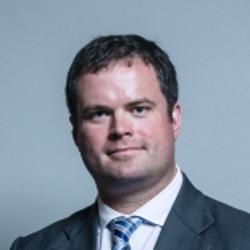Doctors: Pay
(asked on 9th September 2016) - View SourceQuestion to the Department of Health and Social Care:
To ask the Secretary of State for Health, if he will make a comparative assessment of the earning distribution of hospital and community health service doctors to the earning distribution of workers in professional occupations.
The best available comparison, for 2015, is shown in the table below. The Hospital and Community Health Service (HCHS) Doctors figures relate to the earnings of doctors employed by the NHS Hospital and Community Health Service in England, and are based on NHS Earnings Estimates published by NHS Digital. General practitioners are not included. The All Professional Occupations figures represent the earnings of all employees nationally in Professional Occupations, as published by the Office for National Statistics.
Percentile | All Professional Occupations | HCHS Doctors |
10 | £15,331 | £45,000 |
20 | £22,168 | £52,500 |
30 | £26,557 | £61,500 |
40 | £30,465 | £73,500 |
Median | £34,076 | £87,500 |
60 | £37,467 | £99,500 |
70 | £41,675 | £110,500 |
80 | £47,506 | £124,000 |
90 | £59,320 | £144,500 |
Sources: All Professional Occupations earnings statistics published by the Office for National Statistics, from its 2015 Annual Survey of Hours and Earnings.
HCHS Doctors earnings figures based on statistics published by NHS Digital, from NHS Electronic Staff Record data, in NHS Staff Earnings Estimates to December 2015. The NHS Electronic Staff Record is the HR and Payroll system used by almost all National Health Service trusts and foundation trusts in England.
Both sets of figures are the estimated total earnings in 2015 of employees who worked for the full year, regardless of their working hours (i.e. this includes both full-time and part-time workers).
The All Professional Occupations group covers occupations whose main tasks require a high level of knowledge and experience in the natural sciences, engineering, life sciences, social sciences, humanities and related fields. The main tasks consist of the practical application of an extensive body of theoretical knowledge, increasing the stock of knowledge by means of research and communicating such knowledge by teaching methods and other means.
Most occupations in this major group will require a degree or equivalent qualification, with some occupations requiring postgraduate qualifications and/or a formal period of experience-related training.

